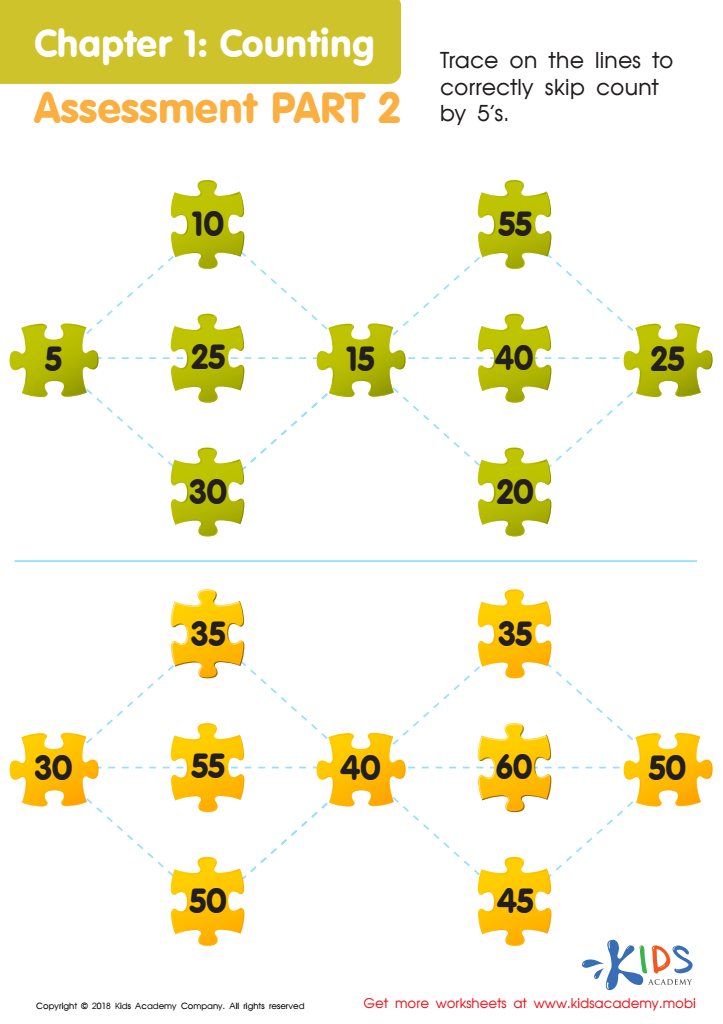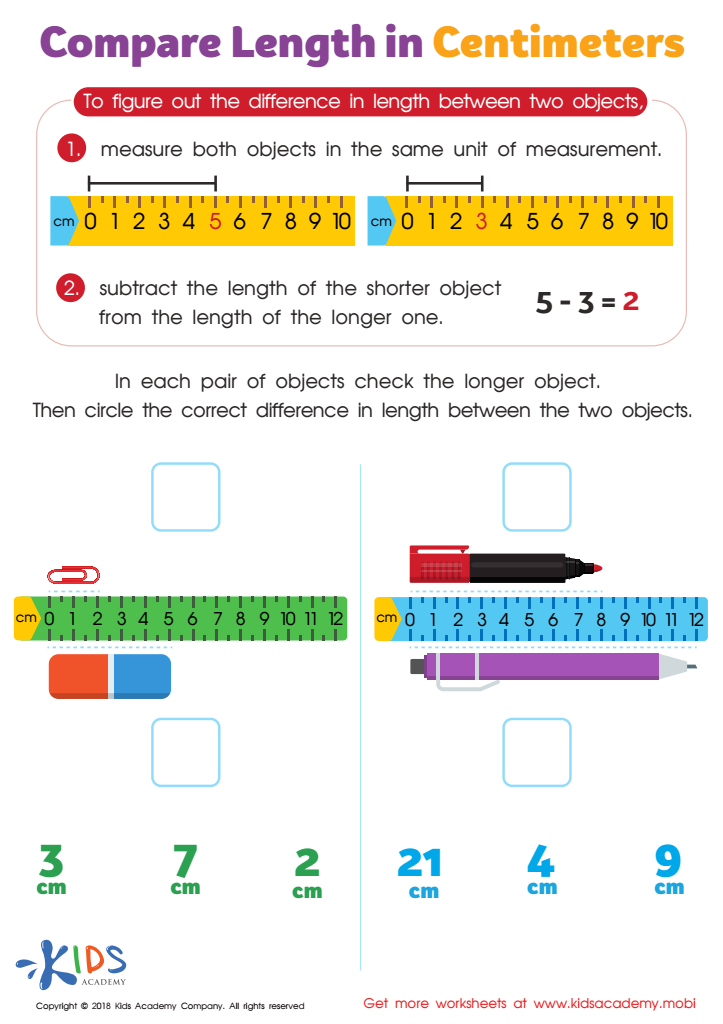Applying math skills Math Worksheets for Ages 3-8
3 filtered results
-
From - To
Welcome to our "Applying Math Skills" worksheets designed for children aged 3-8! These engaging resources help young learners develop essential math concepts through fun and interactive activities. Our printable worksheets target key skills such as counting, addition, subtraction, and problem-solving, fostering a solid foundation for early math success. Each worksheet features colorful illustrations and age-appropriate challenges that inspire creativity and critical thinking. Ideal for use at home or in the classroom, these worksheets can enhance learning while ensuring kids have a great time mastering math. Start exploring and watch your child's confidence in math blossom today!


Counting: Assessment 2 Worksheet


Compare Length in Centimeters Worksheet
Parents and teachers should prioritize applying math skills for children aged 3-8 because early mathematical understanding lays the foundation for future academic success. During these formative years, children are naturally curious and eager to explore their environment. Integrating math into everyday activities fosters critical thinking and problem-solving abilities.
When children recognize math in their surroundings—like counting toys, measuring ingredients while baking, or sorting objects—they develop a practical understanding of math concepts. This hands-on approach not only makes learning enjoyable but also helps them see the relevance of math in real life. Furthermore, developing these skills early boosts confidence, encouraging a positive attitude toward math as they progress through their education.
Employing math through fun games, storytelling, and relatable situations also enhances social skills as children collaborate with peers or family members. Research indicates that early exposure to math concepts, such as patterns, shapes, and numbers, correlates with improved performance in later grades. By emphasizing the importance of applying math skills, parents and educators can cultivate a generation of critical thinkers, equipped to tackle academic challenges and contribute positively to society. Investing time in math education during these crucial years ultimately benefits children's cognitive and emotional development.


 Assign to My Students
Assign to My Students




















